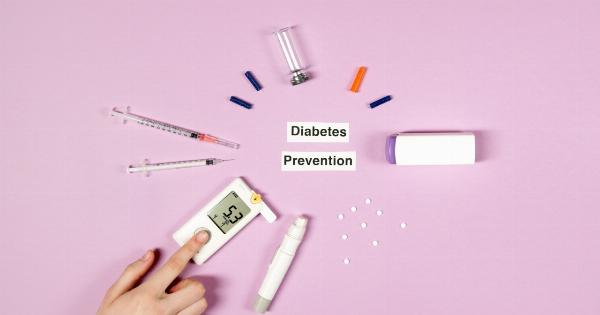Endometriosis is a condition in which the tissue that lines the uterus grows outside of it. This can lead to chronic pain, infertility, and other problems.
If you are struggling to conceive and have been diagnosed with endometriosis, it is important to understand how this condition can impact your fertility and what your treatment options are.
How Endometriosis Affects Fertility
Endometriosis can make it harder to conceive in several ways. The growth of endometrial tissue outside of the uterus can cause scarring and adhesions, which can interfere with the functioning of the ovaries, fallopian tubes, and uterus.
In severe cases, it can cause damage to the ovaries and blockages in the fallopian tubes, making it nearly impossible to conceive naturally.
In addition to physical obstructions, endometriosis can also affect fertility by creating a hostile environment for the fertilized egg.
Studies have shown that women with endometriosis have higher levels of inflammatory chemicals in their pelvic fluid, which can impair the quality of the eggs and reduce the chances of successful implantation.
Diagnosing Endometriosis-Related Infertility
If you have been trying to conceive for a year or longer without success, it is important to talk to your doctor about possible causes of infertility, including endometriosis.
A diagnosis of endometriosis can be confirmed through laparoscopy, a surgical procedure that allows your doctor to view the inside of your abdomen and identify any endometrial tissue that has migrated outside of the uterus.
It is also possible to diagnose endometriosis-related infertility through a variety of tests, including blood tests to check hormone levels, ultrasounds to look for ovarian cysts or other abnormalities, and hysterosalpingography (HSG) or sonohysterography (SHG) to evaluate the structure of the uterus. If you are experiencing any symptoms of endometriosis, such as pelvic pain, heavy periods, or painful intercourse, be sure to mention them to your doctor.
Treatment Options for Endometriosis-Related Infertility
The treatment options for endometriosis-related infertility depend on the severity of the condition and your individual circumstances.
In mild cases, where there is minimal tissue growth and no other underlying issues, simply monitoring ovulation and timing sexual intercourse accordingly may be enough to conceive.
In more advanced cases, however, more aggressive treatment may be necessary. Hormonal therapy, such as birth control pills or gonadotropin-releasing hormone (GnRH) agonists, can suppress ovulation and reduce the growth of endometrial tissue.
This may help improve fertility, but it also delays conception and may have side effects.
In cases where endometriosis has caused significant damage to the reproductive organs, surgery may be necessary to remove the tissue and repair any obstructions or damage.
This can be done through laparoscopy or laparotomy, depending on the extent of the tissue growth. It is important to note, however, that while surgery can help to improve fertility in some cases, there is also a risk of scarring and adhesions that can further complicate the ability to conceive.
Alternative Treatments for Endometriosis-Related Infertility
If you are looking for alternative treatments for endometriosis-related infertility, there are several options available. These may include acupuncture, herbal supplements, and dietary changes.
While these treatments have not been scientifically proven to cure endometriosis or improve fertility, some women report experiencing relief from symptoms and increased chances of conception when using these methods.
It is important to speak with your doctor before trying any alternative treatments, as some may interact with medications or have side effects.
Your doctor may also be able to recommend alternative therapies that are backed by scientific evidence, such as cognitive-behavioral therapy or stress reduction techniques.
Taking Care of Yourself During Treatment
If you are undergoing treatment for endometriosis-related infertility, it is important to prioritize your physical and emotional well-being.
This may include getting regular exercise, eating a healthy diet, getting plenty of rest, and reducing stress whenever possible.
It is also important to have a support system in place and to seek out resources for coping with the emotional challenges of infertility. This may include talking to a therapist, joining a support group, or seeking out online resources.
Conclusion
Endometriosis can be a challenging condition to live with, especially if you are struggling to conceive. However, there are many treatment options available that can help to improve fertility and increase your chances of having a baby.
Working closely with your doctor, and taking care of yourself both physically and emotionally, can help you to navigate the ups and downs of this condition and move forward with confidence.






























